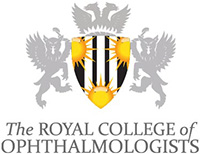Curriculum for Ophthalmic Specialist Training
The curriculum for specialist training in ophthalmology describes the outcomes of 7 years of postgraduate training which leads to a certificate of completed training (CCT). The essential or core requirements are described by a series of nested Learning Outcomes. These are derived from a description of what a consultant ophthalmologist, as a health care professional in the UK, is able to do and how they approach their practice.
A consultant ophthalmologist in the UK is able to assess a patient clinically, order and interpret appropriate investigations and then manage the patient’s clinical care based upon an understanding of basic and clinical sciences. S/he is competent in a range of practical and surgical skills. S/he is able to communicate effectively with a patient and other individuals important in that patient’s care and practise with appropriate attitudes and ethics.
As a healthcare professional working in a multidisciplinary team, a consultant ophthalmologist is aware of the doctor’s role within the health and social services and is able to manage information effectively, efficiently and confidentially. S/he exercises appropriate decision making skills, clinical reasoning and judgement and is able to engage in health promotion and disease prevention and clinical teaching.
A consultant ophthalmologist is aware of her/his limitations in terms of knowledge, experience and skills and always practises within these limits. S/he is prepared to refer patients to other practitioners where appropriate, whether for diagnosis, treatment or support. S/he has an aptitude for and commitment to continuing personal development.
This Curriculum is only available in web-based format.
Members of the general public are welcome to read the OST Curriculum if they so wish, although it is not written with the public in mind. Instead, it is a practical document written for the use of medical professionals in the UK, to ensure that the highest professional standards are understood and applied for the benefit of all patients.
Key to Learning Outcome Descriptions
| Aspect of Clinical Practice (one of 3 Themes) | |
| Domain of Clinical Practice (one of 13) | |
| Title | A succinct title for ease of reference |
| Code | e.g. CA4 = Clinical Assessment Learning Outcome number 4 |
| Learning Outcome | This is the descriptor of the specific Learning Outcome that must be achieved in order to obtain a CCT in Ophthalmology |
| Overview | This is the mandatory part of the Learning Outcome in greater detail so that it may be interpreted by trainees and trainers |
| Assessment | This provides links to the method of assessment of the Learning Outcome and the necessary forms where appropriate |
| Assessor / Comment | Additional information on suitable assessors and the use of related WpBA assessment tools |
| Target Year of Achievement | This describes the year by which most trainees should have achieved the Learning Outcome. It is accepted that many will be achieved before the target date and this will be influenced by the local training programme organisation. Some outcomes must be achieved annually. This is either because there will be a gradual increase in the scope of practice with the outcome or it is so important that regular assessment of competence is expected. Typical targets are Foundation, Year 1, Year 2, Year 3, Years 5/6 and Year 7 |
| Related Learning Outcomes | Hyperlinks to related Learning Outcomes |
| Resources | Hyperlink to advice |
